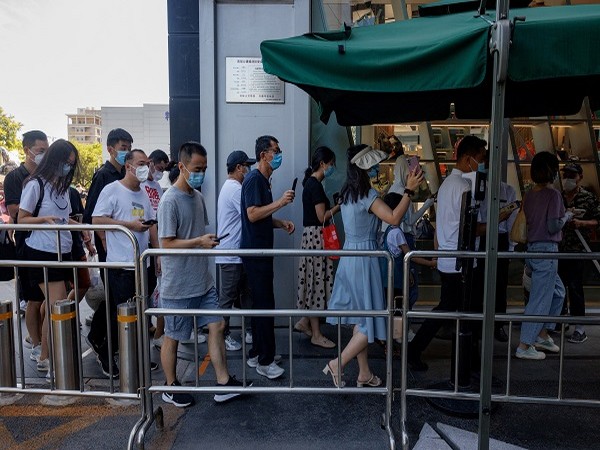QUOTES-Reaction to China loosening COVID restrictions
Let's not get ahead of ourselves in the opening." KEN CHEUNG, CHIEF ASIAN FX STRATEGIST, MIZUHO, HONG KONG "The recent government policy is in line with market expectations for accelerating China's reopening ...

- Country:
- China
China said on Wednesday it would allow COVID patients with mild symptoms to isolate at home as part of a set of new measures that marked a major shift in a tough anti-virus policy that has battered its economy and sparked historic protests. The relaxation of rules, which also include dropping a requirement for people to show negative tests when they travel between regions, came as top officials toned down warnings about the dangers posed by COVID-19.
Here's what people are saying about the latest moves to ease China's COVID curbs; FRANK BENZIMRA, HEAD OF ASIA EQUITY STRATEGY, SOCIETE GENERALE, HONG KONG
"MSCI China has rebounded nicely, valuations have risen and can very gradually normalise. The markets will ask questions on how growth normalisation will happen. "If China's re-opening was to start a new global cycle, we would see the U.S. curve steepening, and higher U.S. Treasury (yields), which is not happening. Let's not get ahead of ourselves in the opening."
KEN CHEUNG, CHIEF ASIAN FX STRATEGIST, MIZUHO, HONG KONG "The recent government policy is in line with market expectations for accelerating China's reopening ... but I think that restrictions will still exist and there will still be quite a lot of mobility restrictions, so I think it's some distance from a full reopening.
"The next checkpoint will be Chinese New Year; I think markets are looking for further relaxation to facilitate return to their hometowns by Chinese New Year." MITUL KOTECHA, HEAD OF EMERGING MARKETS STRATEGY, TD SECURITIES, SINGAPORE
"These are significant steps, and the reality is the current policy had become very difficult to administer given how widespread COVID is in the country. It does shift the balance of growth risk back towards the upside. "But some of this is already in the price. Now it's going to be wait and see (and) how it's executed. The reality on the ground is still one of continued pressure, even as the outlook is improving somewhat."
ZHIWEI ZHANG, CHIEF ECONOMIST, PINPOINT ASSET MANAGEMENT, HONG KONG "This change of policy is a big step forward. In particular the home quarantine policy will help to reallocate resources to focusing on treating patients with severe symptoms and patients with need for treatment other than COVID.
"The new policy pushes China's reopening process earlier than market expected. In line with the message from the Politburo meeting today: to boost market confidence. I expect China will fully reopen its border no later than mid-2023. "The quarantine requirement for international travellers will likely be shortened soon. The key issue in the next few months is to keep the hospitals running and get vaccination rate for senior citizens up quickly."
SAKTIANDI SUPAAT, REGIONAL HEAD OF FX RESEARCH & STRATEGY, MAYBANK, SINGAPORE "I think markets have, in some ways, priced in that element (of further easing).
"I think markets are probably expecting more about the opening up of the economy ... and are probably still worried about the possibility of policy U-turns if they do not ... see infections actually easing off, and also whether the authorities will be able to control outbreaks." NAKA MATSUZAWA, CHIEF JAPAN MACRO STRATEGIST, NOMURA, TOKYO
"This is more like noise than a game changer. I mean, it's better for China to deregulate its COVID restrictions but even if it's a booster for the Chinese economy and commodity prices, that will work negatively for a Fed pause because it tightens monetary conditions." "The most important thing (for investors globally) is the Fed pause, and whether the markets starts to see the slowdown as bad news instead of good news, so Chinese deregulation really doesn't change that."
(This story has not been edited by Devdiscourse staff and is auto-generated from a syndicated feed.)










